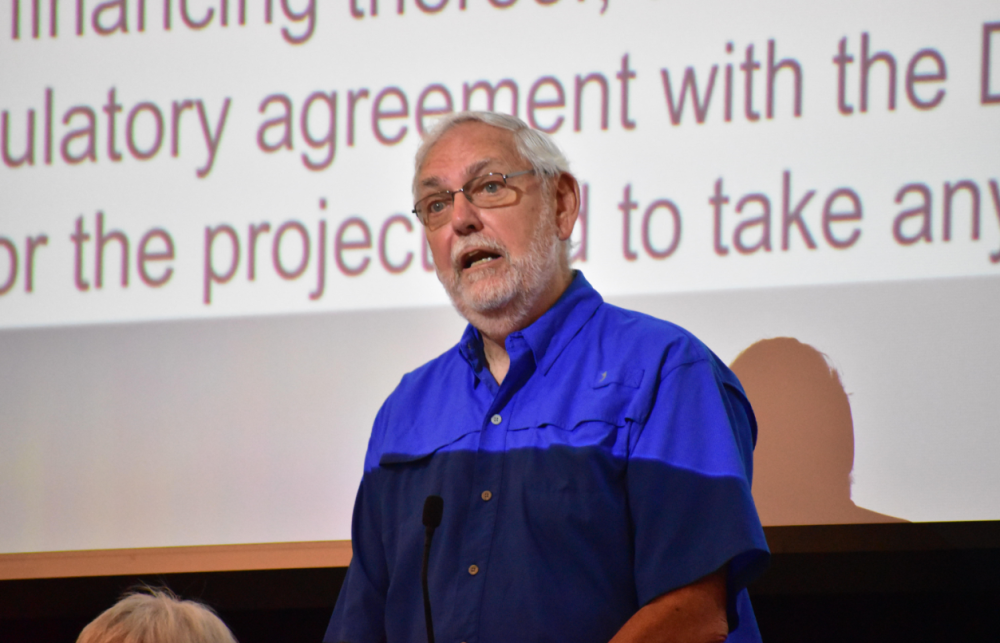Sewer Commission to request extension from state for $36 million project
The Sewer Commission is applying for a second extension for the Clean Water State Revolving Fund Loan following the denial of a $36 million borrowing authorization for sewerage facility repairs at the Monday, July 24 Special Town Meeting.
The Sewer Commission and outside consultants have argued that replacement of parts of the “headworks” and “clarifier,” which deal with sewage at the beginning and end of the treatment process, are reaching the end of their useful life and that replacing them is critical to keeping the plant functioning.
However, after much debate, Town Meeting voted 48-30 in favor of the project, but failed to achieve the two-thirds majority needed to approve the borrowing.
This decision comes after the commission already received an extension. Director of the Water Pollution Control Facility Guy Campinha said the commission needed to initially appropriate the funds by June 30. However, this deadline became the end of July so that the request could be brought before the town.
Campinha said there is a hard deadline of Oct. 31 to appropriate the funds and the commission will therefore request an extension to October.
Sewer Commission Chair Bernie Pigeon said this project needs to happen whether it receives borrowing approval from the town or not.
Pigeon said if this project does not happen, the plant will fail and when it does it may not just be the sewer users fitting the bill.
He added if the plant fails, he is unsure how the financing would work.
It is currently unclear how the town will come up with the $36 million needed to make the appropriate repairs, but town officials don’t want to see the plant fail.
“If it fails catastrophically for any one of those issues, and Guy [Campinha] can't handle the inflow before he gets it repaired — if it's that catastrophic — then it's a very serious problem for the entire community,” Pigeon said.
He said the town needs to approve the $36 million borrowing, which would include grant funding and a low interest rate, to avoid paying for the whole project minus an approximately 17% contribution from Bourne.
Though Bourne and Wareham do have an intermunicipal agreement that would necessitate this contribution, during the Special Town Meeting, Select Board member Alan Slavin said Bourne was neither aware of this project nor of their anticipated contribution of over $6 million.
The Sewer Commission and Campinha discussed the outcome of the Special Town Meeting and what could be done differently if given another chance to request borrowing.
Pigeon said the meeting was “out of control” and “almost nothing of what they said was applicable to what we were there for because they were asking for what's happened and what else is going on.”
Sewer Commissioner Peter Dunlop said allowing voters to refer to the project as a “Band-Aid’’ continuously at the Special Town Meeting was a mistake
“You put a Band-Aid on a papercut, but you don’t put a Band-aid on this critical issue,’’ Pigeon said.
Sewer Commission Clerk Sandy Slavin said the Select Board decided not to recommend borrowing approval because they wanted an estimate of the total cost to revamp the facility and no one could provide one.
Campinha said, “It's unfair to ask for a number without details of the number you're looking for. That is not a fair question.”
Pigeon said within the reports made by GHD, the consulting firm, everything in the facility has been evaluated, but no estimates were made on the costs of items beyond “clarifiers” and “headworks.”
He said there was no reason to do so because “we're not replacing it.”
Campinha said the new plant in Orleans that is set to process 340,000 gallons of wastewater per day was brought up at the meeting.
He said the process of looking into constructing that plant began in 2015. If Wareham were to consider opening one, it would not open until 2030 or 2035 and due to the capacity needed it would cost three to four times as much.
Dunlop, who did not support the borrowing request due to the project costing only the ratepayers in town, said, “We don't know how long the plant is going to last, but if we do steps one and two [replacing the “headworks” and “clarifiers”], maybe we can limp along for a while, get the cost of this loan paid down a little and then ask for more.”
He added, “Does it really make any difference what it costs? Are you going to take away indoor plumbing?”
Pigeon said if Dunlop had agreed with the borrowing to begin with, a united front could have helped win over more voters as the request only needed four more votes in favor for the project to have passed.
“If we're going to be successful,” he said, “we have to, when we finally make our vote, work together.”












